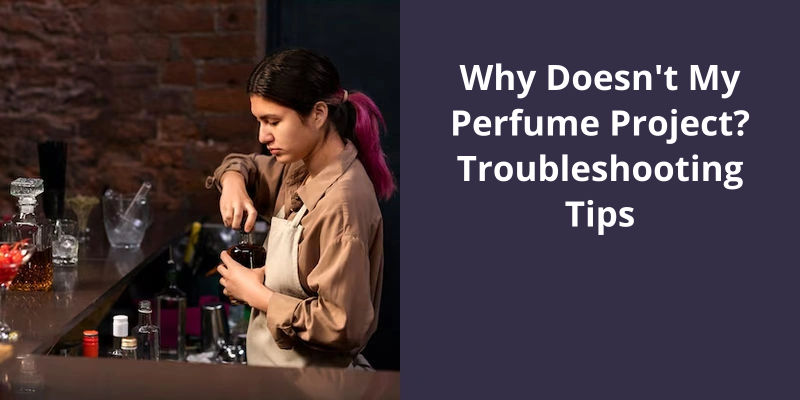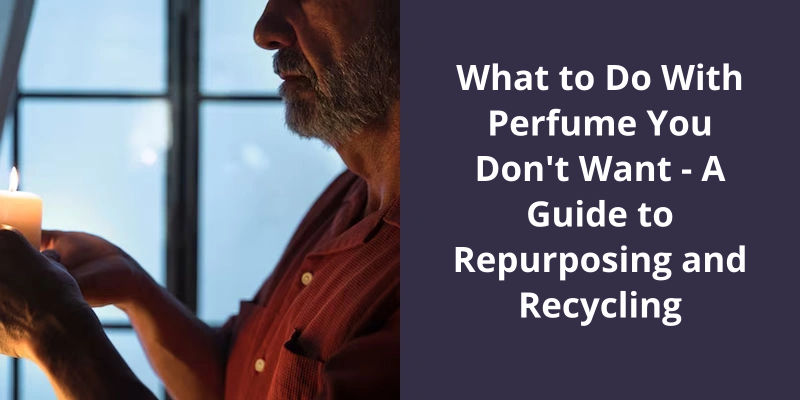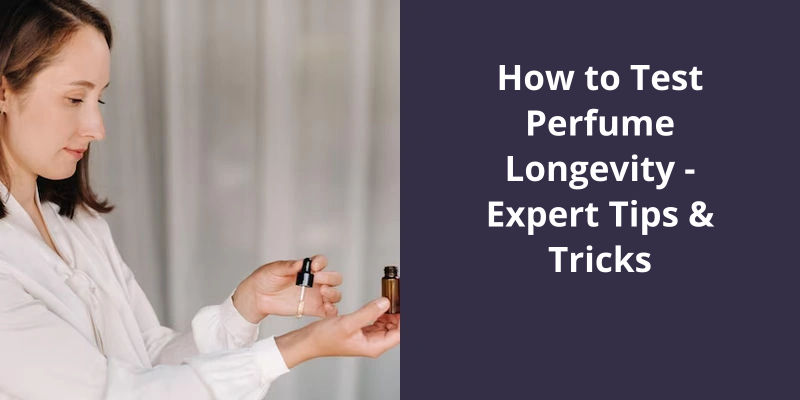The reason your perfume may not project can be attributed to several factors. Your skin’s unique chemistry can alter the way a perfume smells and interacts with your body heat. A fragrance may not project if your skin is very dry because perfume tends to evaporate faster on dry skin. Another possible reason could be that you have become used to your perfume’s scent. This phenomenon, known as olfactory fatigue or nose blindness, usually happens when you are continuously exposed to the same scent. Finally, it could simply be the nature of the perfume itself. Some perfumes, particularly those with a lighter concentration, such as eau de toilette, don’t project as much as more intense ones, like eau de parfum.

Why Can’t Anyone Smell My Perfume?
Have you ever wondered why you can never smell your own perfume, even though everyone else around you seems to be able to? It may be because of a phenomenon called nose blindness. Our sense of smell is incredibly sensitive, but it can also become desensitized to smells that we’re exposed to constantly. This is why we might not notice a strong smell after being around it for a while, and why we sometimes need to get a whiff of fresh air to clear our nostrils.
What this means for perfume wearers is that our noses can become so accustomed to the scent of our chosen fragrance that we stop noticing it altogether. This doesn’t mean that the perfume has stopped working or that we’re immune to it’s effects. Rather, it’s simply our brains way of filtering out a constant, unchanging sensory input. We may still be benefiting from the mood-boosting and confidence-boosting effects of our perfume, even if we cant smell it ourselves.
To get around nose blindness, one trick is to expose yourself to different smells throughout the day. This might mean taking a short walk outside, keeping a small bottle of a different fragrance on hand to refresh your nose, or simply trying to smell something else for a few moments before trying to pick up the scent of your perfume again. By giving your nose a break and then reintroducing the scent, you may be able to pick it up more clearly than before.
It’s also worth noting that some people are simply less sensitive to certain smells than others, which can make it difficult to pick up on subtle scents like perfume. This is especially true for those with allergies or sinus issues, which can affect the ability to smell. Additionally, some people simply prefer a more subtle scent and may choose to apply less perfume or choose a fragrance with a less potent aroma.
Ultimately, the key to getting the most out of your perfume is to find a balance between wearing enough to get the desired effect without overwhelming yourself or others with the scent. If you find that you cant smell your perfume at all, try experimenting with different application methods or adjusting the amount you wear. And remember, just because you cant smell your own perfume doesn’t mean that it’s not working or that youre not benefiting from it’s effects.
The Science Behind Why Certain Perfumes May Last Longer Than Others
- Perfumes are complex mixtures of chemicals that have different molecular sizes and properties.
- The molecular weight, boiling point, and solubility of each component determine how quickly it evaporates and fades away.
- Some compounds are more volatile and easily released into the air, while others are heavier and stick to the skin or clothes.
- The pH of the skin, the amount of sweat, and the temperature of the environment can also affect the longevity of a perfume.
- Moreover, the concentration of fragrance oils in a perfume can vary from 1% to 40%, with higher levels resulting in stronger and longer-lasting scents.
- The type of alcohol or carrier used in the perfume can also influence it’s staying power, as well as the quality of the ingredients.
- Finally, the way a perfume is stored, applied, and layered with other products can also impact it’s durability and projection.
Conclusion
It’s clear that the world of perfumery is complex and intricate, requiring a deep understanding of various scents, chemicals, and processes to create the perfect result. Therefore, it isn’t surprising that many people may encounter difficulties when undertaking a perfume project. From choosing the right ingredients to balancing different notes, perfume-making requires patience, experimentation, and skill. However, while the road to success may be long and challenging, it’s important to remember that every failed attempt is an opportunity to learn and improve. Whether you’re a novice perfumer or an experienced one, perseverance, creativity, and a willingness to learn are essential attributes that can help you achieve your perfume-making goals. Ultimately, the process of creating a unique and captivating scent can be immensely rewarding and satisfying, and it’s certainly worth the time and effort required to master this fascinating craft.





